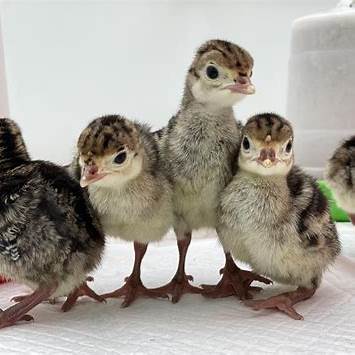Introduction
Proper egg selection and storage are the unsung heroes of successful hatching. Even the best incubator can’t save poorly handled eggs. In this guide, AV Birds explains exactly how to identify fertile turkey eggs, store them for peak viability, and prepare them for incubation so you get strong, healthy poults every time.
1. Selecting Fertile Turkey Eggs
A healthy hatch starts with quality genetics and properly maintained breeders.
Key Selection Checklist
-
Clean shells only: Skip washed or soiled eggs — washing removes the natural protective bloom.
-
Uniform size & shape: Avoid extremely large, small, or misshapen eggs that cause uneven heating.
-
Strong shells: Thin or porous shells reduce hatch rate due to moisture loss.
-
Freshness: Choose eggs less than 7 days old for best results.
Healthy breeding pairs should have a 1 tom to 5–7 hens ratio to ensure fertility without excessive stress.
(External link: Mississippi State Extension – Poultry Fertility and Egg Handling)
2. Candling and Visual Inspection
Candling before incubation isn’t just for development checks — it helps detect cracks and thin shells early.
Hold each egg to a small LED light:
-
Good eggs: Uniform color, no cracks, solid yolk shadow.
-
Reject eggs: Hairline cracks, air cell separation, odd spots.
A small air cell ≈ ⅛ inch shows proper moisture balance for storage.
3. Ideal Storage Temperature & Humidity
Turkey eggs remain viable for about 7–10 days if kept cool and humid.
| Condition | Recommendation |
|---|---|
| Temperature | 55–60 °F (13–15.5 °C) |
| Humidity | 70–80 % |
| Duration | Up to 7 days (best) / 10 days max |
| Position | Large end up / turn daily |
Avoid storing eggs in a refrigerator — temps below 50 °F damage embryos.
4. Daily Turning During Storage
If stored more than 2 days, turn eggs once or twice daily to prevent the yolk from sticking to the shell. Mark each side (“A/B”) in pencil for tracking.
Place them in an egg tray angled 45° and alternate sides each day.
5. Preparing Eggs for Incubation
Before placing eggs in the incubator:
-
Warm to room temperature slowly (4–6 hours). Sudden temperature change causes shell sweating and bacteria growth.
-
Re-check for cracks or contamination.
-
Set within 24 hours after removal from storage for maximum fertility.
(Internal link → “AV Birds Turkey Hatching Eggs for Sale”)
6. Handling and Shipping Best Practices
When buying or shipping fertile turkey eggs:
-
Use temperature-controlled packaging.
-
Cushion each egg individually with shredded paper or foam.
-
Ship via priority mail and avoid weekends.
On arrival, let eggs rest pointed-end down for 12 hours before setting them.
(External link: USDA Poultry Handling Guidelines)
7. Common Mistakes to Avoid
| Mistake | Result | Fix |
|---|---|---|
| Storing too cold | Kills embryo | Keep above 55 °F |
| Dry air | Dehydrates egg | Maintain 70–80 % humidity |
| Not turning | Embryo sticks | Turn daily |
| Dirty eggs | Bacteria growth | Never wash — discard |
8. Why Source from AV Birds
AV Birds selects fertile Bourbon Red and heritage turkey eggs from proven breeding stock. Each egg is carefully handled to preserve natural fertility and protected with temperature-controlled packaging for safe arrival nationwide.
(Internal link: Shop Turkey Hatching Eggs)
Conclusion
Proper storage and selection turn average results into outstanding hatch rates. By following these steps and starting with fertile eggs from AV Birds, you’ll build a foundation for a thriving flock of healthy turkey poults.

